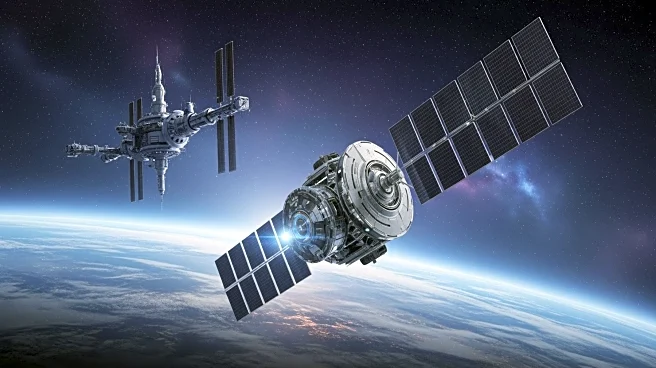What's Happening?
Lockheed Martin has reported a significant increase in its space division earnings for the third quarter of 2025. The company achieved $3.4 billion in sales for its space division, up from $3.1 billion in the same
period last year. This growth is attributed to $160 million in sales from strategic and missile defense programs, along with an additional $70 million from national security programs. CEO Jim Taiclet emphasized the importance of major national defense initiatives, such as the Golden Dome for America, which require expertise in integrated air and missile defense, space warfare, and secure command-and-control systems. Meanwhile, Northrop Grumman reported a decrease in its space segment sales, attributing the decline to a lower volume of SDA satellite contracts and the completion of Next Generation Interceptor programs. Iridium, another key player, reported higher-than-expected revenues, driven by growth in its commercial Internet of Things business.
Why It's Important?
The increase in Lockheed Martin's space division earnings highlights the growing importance of strategic defense programs in the U.S. space industry. As national security concerns continue to drive demand for advanced space capabilities, companies like Lockheed Martin are positioned to benefit from government contracts and initiatives. This trend underscores the critical role of space technology in national defense strategies, potentially influencing future policy decisions and funding allocations. Northrop Grumman's decreased earnings in the space segment may prompt a reassessment of its contract strategies, while Iridium's growth in IoT services indicates a shift towards commercial applications in satellite communications. These developments could impact the competitive landscape of the U.S. space industry, with implications for innovation and investment.
What's Next?
Lockheed Martin's continued focus on strategic defense programs suggests potential for further growth in its space division. The company's leadership in integrated air and missile defense systems may attract additional government contracts, bolstering its position in the defense sector. Northrop Grumman may need to explore new opportunities or partnerships to offset its decreased space segment earnings. Iridium's success in the IoT market could lead to expanded services and subscriber growth, enhancing its competitive edge in satellite communications. As these companies navigate the evolving space industry, their strategies and performance will likely influence broader trends in defense and commercial space applications.
Beyond the Headlines
The emphasis on strategic defense programs by companies like Lockheed Martin reflects broader geopolitical dynamics, where space technology plays a pivotal role in national security. This focus may raise ethical and legal questions regarding the militarization of space and the balance between defense and peaceful exploration. Additionally, the growth of IoT services in satellite communications highlights the increasing integration of technology in everyday life, potentially reshaping industries and societal norms. As the space industry evolves, stakeholders must consider the long-term implications of these developments on global security and technological advancement.










